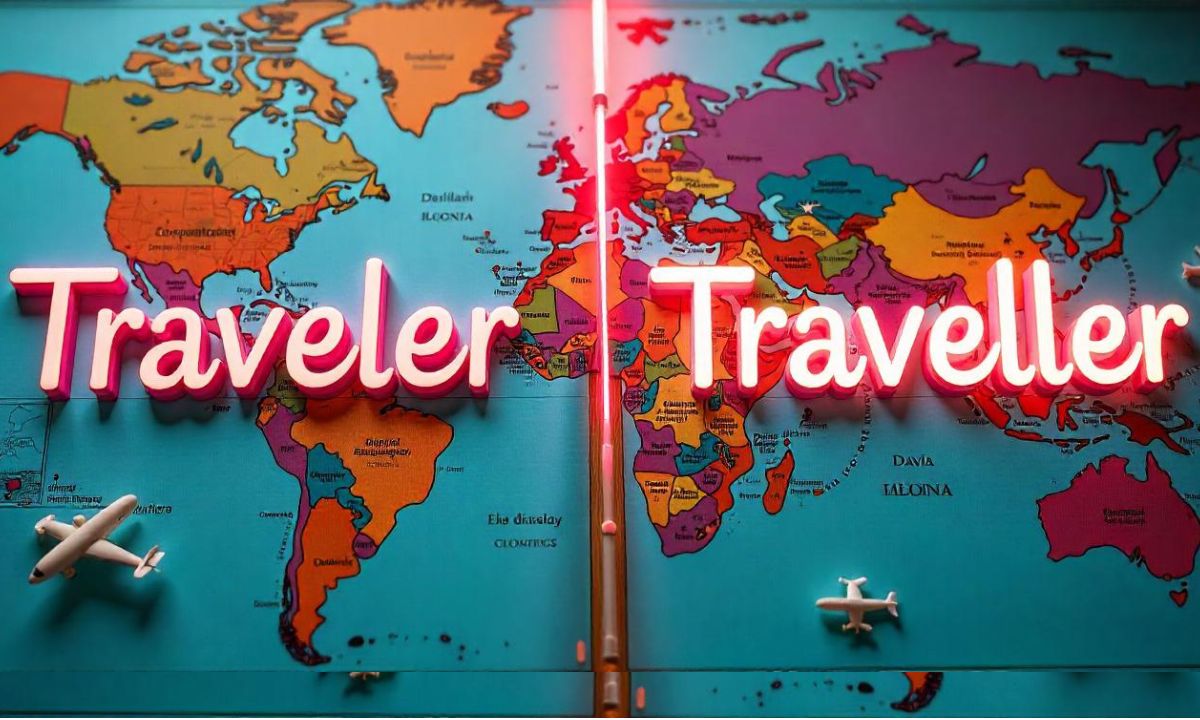Every language has its quirks, and English is no exception. One of the most fascinating linguistic puzzles that often leaves writers scratching their heads is the spelling of the word traveler (or is it traveller?). Whether you’re a globetrotter, a wordsmith, or simply someone who loves linguistic precision, this comprehensive guide will walk you through the intricacies of this seemingly simple word.
Understanding the Difference: Traveler vs Traveller
The English language is a beautiful tapestry of regional variations, and the word “traveler” perfectly illustrates this linguistic diversity. At first glance, these two spellings might seem like a simple typo, but they’re actually a reflection of deeper linguistic traditions.
British English: Traveller (Two L’s)
In the United Kingdom and many Commonwealth countries, traveller reigns supreme. This spelling is deeply rooted in British English conventions, which typically preserve more traditional spelling patterns. The double “l” is characteristic of British orthographic traditions, tracing back to historical language development.
Key Characteristics of British English Spelling:
- Tends to retain extra letters
- Follows more conservative spelling rules
- Reflects historical linguistic patterns
American English: Traveler (One L)
Across the Atlantic, Americans prefer the streamlined traveler. This spelling can be traced back to Noah Webster’s influential dictionary and spelling reforms of the early 19th century. Webster sought to simplify English spelling, making it more phonetic and consistent.
American Spelling Characteristics:
- Simplified and more phonetic
- Removes unnecessary letters
- Reflects a more pragmatic approach to language
Why Does the Spelling Change?
Language is a living, breathing entity that evolves with culture, communication, and historical context. The traveler vs traveller debate is a perfect example of linguistic evolution.
Historical Language Development
| Region | Spelling | Historical Influence |
| UK | Traveller | Colonial-era English |
| USA | Traveler | Webster’s Dictionary |
| Canada | Both | Influenced by British and American English |
Is One Spelling ‘More Correct’ Than the Other?
The short answer? Absolutely not. Both spellings are correct in their respective contexts. What matters most is consistency and understanding your audience.
Practical Tips for Spelling Consistency
Spelling consistency is crucial in professional writing. Choose either traveler or traveller and maintain that spelling throughout your document. Your choice should align with your target audience’s regional preferences.
Digital tools can help standardize spelling, but always do a final manual review. Set your word processor’s language preferences to match your intended regional style.
How to Spell Traveler: General Guidelines
- Know Your Audience:
- Use traveler for American publications
- Use traveller for British and Commonwealth publications
- Consider your target readership
- Consistency is Key:
- Once you choose a spelling, stick with it throughout your document
- Avoid mixing spellings in the same piece of writing
Common Mistakes to Avoid
- Don’t Mix Spellings: Choose one and be consistent
- Check Style Guides: Different publications have different preferences
- Use Digital Tools: Spell-checkers can help, but be aware of regional settings
Real-World Usage: When to Use Each Spelling
Professional contexts demand careful spelling choices. Academic papers, research documents, and international publications often have specific style guide requirements for spelling.
Travel writing requires sensitivity to regional variations. UK-based publications prefer traveller, while American platforms use traveler. Digital content increasingly accepts both spellings, reflecting global communication trends.
Professional Contexts
- Academic writing
- Professional publications
- International communication
Digital Content
With the rise of global digital platforms, the lines are becoming increasingly blurred. Many online publications now accept both spellings, prioritizing clarity over strict regional adherence.
Global Audience Considerations
When writing for an international audience, consider these tips:
- Use traveler for a predominantly American audience
- Opt for traveller for UK, Australian, or Commonwealth readers
- In multinational contexts, either spelling is generally acceptable
Travelers Or Travellers
The term travelers/travellers represents a linguistic journey through regional spelling variations. Both spellings are grammatically correct, with the primary difference rooted in geographical language conventions.
American English typically uses one “l”, while British English prefers two “l’s”, reflecting deeper cultural language nuances.
Traveller Or Traveler UK
In the United Kingdom, traveller with two “l’s” is the standard spelling. This preference stems from traditional British English orthographic rules, which tend to preserve more complex spelling patterns.
British publications, academic institutions, and official documents consistently use this spelling variant, maintaining linguistic heritage and regional identity.
Spell Traveller
Spelling traveller correctly involves understanding regional context. In British English, the double “l” follows standard spelling conventions for words ending in a single vowel plus “l”.
When adding suffixes, British writers double the “l” (traveling/travelling), whereas American English typically drops the second “l”. Remembering these subtle differences helps writers communicate more precisely across different English-speaking regions.
Expert Quote
“Language is a living organism. Its beauty lies not in rigid rules, but in its ability to adapt and evolve.” – Linguistic Expert, Dr. Emily Richardson
Conclusion: Embrace the Linguistic Diversity
The traveler vs traveller debate is more than just a spelling choice—it’s a celebration of linguistic diversity. Whether you’re writing a travel blog, academic paper, or personal journal, understanding these nuanced differences can elevate your communication.

